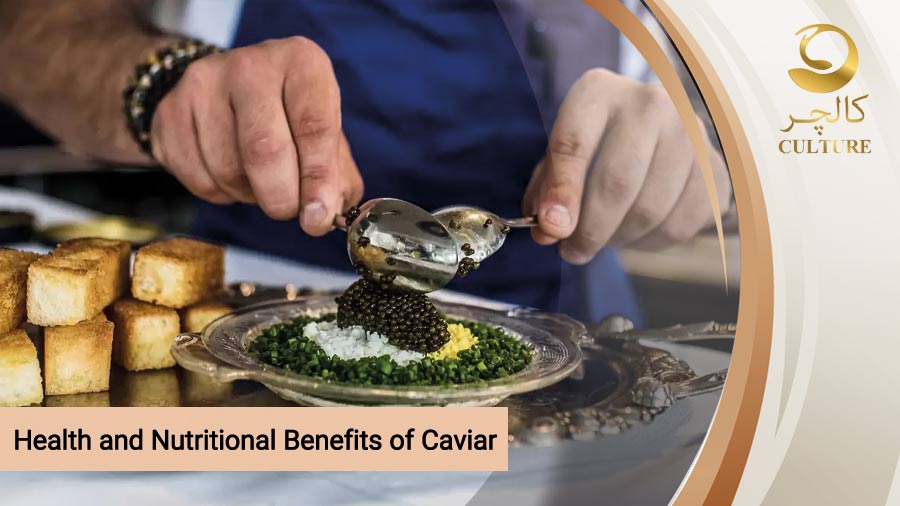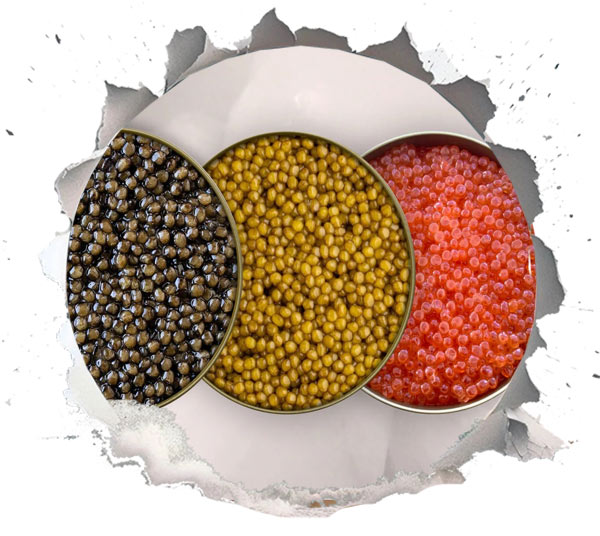Health and Nutritional Benefits of Caviar

Caviar, the luxurious delicacy of fish eggs, has long been associated with opulence and exclusivity. However, beyond its prestigious reputation lies a surprisingly rich profile of health and nutritional benefits. While often perceived as a mere indulgence, a closer look reveals a powerhouse of essential nutrients that contribute to overall well-being. This article delves into the scientific evidence supporting the caviar benefits, exploring its nutritional composition and the potential impact on various aspects of health.
Nutritional Benefits of Caviar: Unpacking the Composition of Caviar
Caviar’s nutritional profile varies depending on the fish species from which it originates. However, generally, it boasts an impressive array of vitamins, minerals, and healthy fats. Let’s explore some key components:
- High-Quality Protein: Caviar is an excellent source of high-quality protein, essential for building and repairing tissues, producing enzymes and hormones, and supporting immune function. A 100-gram serving of caviar can provide around 25-30 grams of protein, contributing significantly to daily protein requirements.
- Omega-3 Fatty Acids: Rich in omega-3 fatty acids, particularly EPA (eicosapentaenoic acid) and DHA (docosahexaenoic acid), caviar contributes to cardiovascular health. Omega-3s are known to reduce inflammation, lower triglyceride levels, and improve blood pressure. Studies have linked regular consumption of omega-3s to a reduced risk of heart disease, stroke, and other cardiovascular events. For example, a meta-analysis published in the Journal of the American Medical Association found a significant association between omega-3 fatty acid intake and a reduced risk of coronary heart disease.
- Vitamins and Minerals: Caviar is a treasure trove of essential vitamins and minerals. It’s a good source of vitamin B12, crucial for nerve function and red blood cell formation. It also contains vitamin D, vital for calcium absorption and bone health; selenium, a powerful antioxidant; and iron, essential for oxygen transport throughout the body. The specific vitamin and mineral content can vary depending on the type of caviar and the diet of the fish.
- Healthy Fats: While high in fat, caviar’s fat content is predominantly composed of unsaturated fats, including monounsaturated and polyunsaturated fats. These healthy fats are beneficial for heart health and contribute to overall well-being. They help lower LDL (“bad”) cholesterol levels and raise HDL (“good”) cholesterol levels, further reducing the risk of cardiovascular disease.
- Choline: Caviar is a surprisingly good source of choline, an essential nutrient often overlooked. Choline plays a crucial role in brain development, memory function, and liver health. It’s a vital component of cell membranes and helps produce neurotransmitters. Adequate choline intake is particularly important during pregnancy and infancy for optimal brain development.
Health Benefits of Caviar: Beyond the Palate

The impressive nutritional profile of caviar translates into a range of potential health benefits:
- Cardiovascular Health: As mentioned earlier, the high content of omega-3 fatty acids and the favourable fat profile contribute significantly to cardiovascular health. Regular consumption of caviar may help reduce the risk of heart disease, stroke, and other cardiovascular complications.
- Brain Health: The presence of choline and omega-3 fatty acids makes caviar beneficial for brain health. Choline supports cognitive function, memory, and learning, while omega-3s are crucial for brain structure and function throughout life. Studies have suggested a link between omega-3 intake and a reduced risk of age-related cognitive decline.
- Eye Health: DHA, a type of omega-3 fatty acid abundant in caviar, is a vital component of the retina. Adequate DHA intake is essential for maintaining healthy vision and reducing the risk of age-related macular degeneration, a leading cause of vision loss in older adults.
- Immune System Support: Caviar’s rich vitamin and mineral content, particularly selenium and vitamin B12, supports immune function. Selenium acts as a powerful antioxidant, protecting cells from damage caused by free radicals, while vitamin B12 is crucial for the production of immune cells.
- Anti-inflammatory Properties: The omega-3 fatty acids in caviar possess anti-inflammatory properties. Chronic inflammation is linked to various health problems, including heart disease, arthritis, and certain types of cancer. By reducing inflammation, caviar may contribute to overall health and well-being.
Types of Caviar and Their Nutritional Variations

The nutritional composition of caviar can vary depending on the species of fish from which it originates. Some of the most popular types include:
- Beluga Caviar: Considered the “king” of caviar, Beluga caviar comes from the beluga sturgeon and is known for its large, pearly-grey eggs and delicate flavour. Its nutritional profile is similar to other types of caviar, but it may contain slightly higher levels of certain nutrients depending on the sturgeon’s diet.
- Ossetra Caviar: Ossetra caviar, from the Ossetra sturgeon, is prized for its nutty flavour and medium-sized eggs. Its nutritional content is comparable to Beluga caviar.
- Sevruga Caviar: Sevruga caviar, from the sevruga sturgeon, features smaller, dark grey eggs and a slightly salty taste. While its nutritional value is similar to other types, it may have slightly lower fat content.
- Sterlet Caviar: Sterlet caviar is obtained from the sterlet sturgeon and is known for its small, golden-yellow eggs and delicate flavour. Its nutritional profile is generally similar to other caviar varieties.
It’s important to note that the nutritional information provided is based on average values and can vary depending on factors like the fish’s diet, the processing methods, and the specific brand of caviar.
Incorporating Caviar and Its Benefits Into a Balanced Diet
While caviar offers numerous health benefits, it’s crucial to remember that it should be consumed as part of a balanced and varied diet. Due to its high cost, it’s unlikely to be a staple food for most individuals. However, occasional consumption can contribute to a nutrient-rich diet. Consider incorporating caviar in small amounts as a special treat or as part of a luxurious meal. Its rich flavour and texture make it a delightful addition to various dishes, from simple canapés to elaborate culinary creations.
Potential Concerns and Considerations
Despite its health benefits, it’s important to be aware of potential concerns:
- High Sodium Content: Caviar is naturally high in sodium, which can concern individuals with high blood pressure or other sodium-sensitive conditions. Moderation is key.
- Purine Content: Caviar contains purines, which can be problematic for individuals with gout. High purine intake can exacerbate gout symptoms.
- Allergies: Some individuals may be allergic to fish or fish products, including caviar. It’s crucial to be aware of any potential allergies before consuming caviar.
- Cost: Caviar is a relatively expensive food, making regular consumption impractical for many.
Conclusion
Caviar, while a luxurious delicacy, offers a range of impressive health benefits thanks to its rich nutritional profile. Its high-quality protein, omega-3 fatty acids, vitamins, minerals, and choline contribute to cardiovascular health, brain function, immune system support, and overall well-being. While moderation is key due to its sodium and purine content, occasional caviar consumption can be a delightful and nutritious addition to a balanced diet. However, always consult with a healthcare professional or registered dietitian before making significant dietary changes, especially if you have pre-existing health conditions. Enjoy this exquisite delicacy responsibly and savour its unique flavour and potential health advantages. For a convenient option, consider exploring where to purchase caviar online to experience its indulgence from the comfort of your home.

